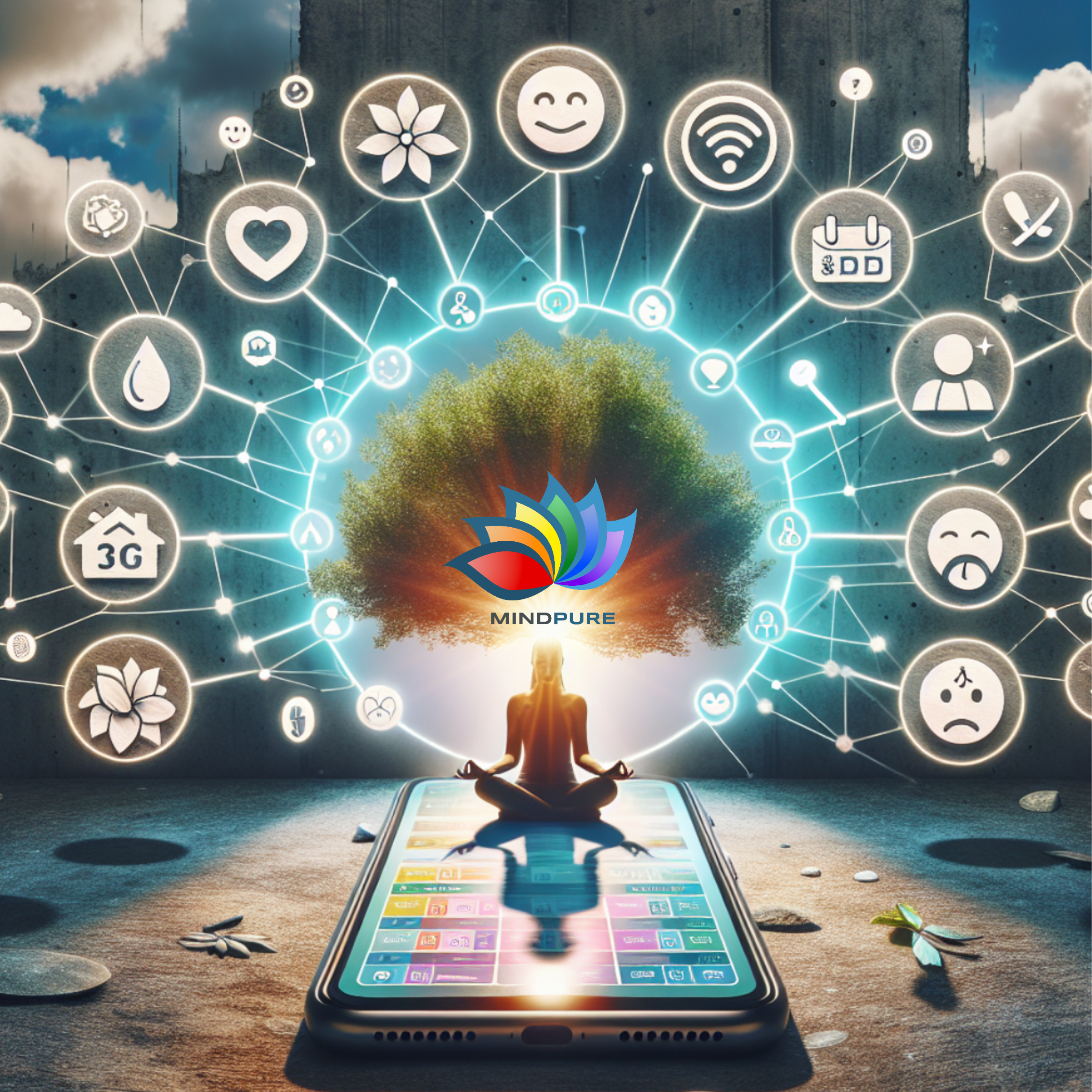
In recent years, the digital health landscape has witnessed a significant surge in mental health apps designed to cater to various aspects of mental well-being. These apps offer accessible and often affordable resources for individuals seeking support, guidance, and tools to manage their mental health. Among the most popular and segmented types of mental health apps are:
1.Meditation and Relaxation Apps: These apps focus on mindfulness, meditation, and relaxation techniques to help users reduce stress and improve overall mental well-being. Examples include:
- Headspace: Offers guided meditations, mindfulness exercises, and sleep sounds.
- Insight Timer: Provides a vast library of free meditations and the ability to track your progress.
- Calm: Features guided meditations, sleep stories, breathing programs, and relaxing music.
These apps excel in providing immediate relief from stress and anxiety through mindfulness practices. However, they do not offer personalized mental health plans or in-depth engagement with mental health professionals.
2.Mood and Symptoms Trackers: These apps are designed to help users monitor their mood and symptoms, identify patterns, and track progress over time. Examples include:
- Moodfit: Offers tools for tracking mood, setting goals, and accessing cognitive behavioral therapy (CBT) techniques.
- MindDoc: Provides daily mood tracking, insights into mental health, and access to self-help courses.
- HappyMe: Focuses on mood tracking and positive psychology exercises to improve well-being.
While mood and symptoms trackers are valuable for self-monitoring and identifying trends, they often lack direct interaction with mental health professionals and personalized treatment plans.
3.Teletherapy Apps: These apps connect users with licensed therapists for online counseling and therapy sessions. Examples include:
- BetterHelp: Offers online therapy with licensed counselors via text, chat, phone, and video.
- Talkspace: Provides therapy sessions with licensed therapists through messaging, video, and voice calls.
- Amwell: Connects users with therapists and other healthcare providers for virtual consultations.
Teletherapy apps have revolutionized access to mental health care, making it more convenient and accessible. However, they may not fully integrate other aspects of well-being, such as physical health or social determinants of health (SDOH).
Despite the benefits of these apps, they share several limitations:
- None provide a bridge to engage all stakeholders in one's well-being: These apps typically focus on individual users and lack comprehensive engagement with families, healthcare providers, or other stakeholders involved in the user's care.
- No engagement with other individuals with similar experiences or clinical expertise: While some apps offer community features, they often do not facilitate meaningful interactions with peers or experts who share similar experiences.
- None provide a comprehensive solution with physical, mental, and SDOH needs all under one roof: Most mental health apps address specific aspects of well-being but fail to integrate physical health and social determinants, which are crucial for holistic health.
- No concierge services to engage patients immediately: Immediate and personalized support is often lacking, leaving users without real-time guidance or assistance.
- No reward system or outcomes-driven design: Many apps do not incorporate mechanisms to incentivize users or measure the effectiveness of interventions based on outcomes.
Introducing MindPure by Kbrax: A Holistic Approach to Mental and Physical Health
Recognizing these gaps, Kbrax has developed MindPure, a mental and physical health app that not only encompasses the features found in popular mental health apps but also addresses their limitations. MindPure leverages advanced AI to provide personalized recommendations, acting as a smart friend that tailors its suggestions based on the user's moods and needs.
Key features of MindPure include:
- Comprehensive Engagement: MindPure connects all stakeholders involved in an individual's well-being, including family members, healthcare providers, and support networks.
- Community Interaction: The app facilitates engagement with peers and clinical experts, fostering a supportive environment for users.
- Holistic Health Integration: MindPure addresses mental, physical, and SDOH needs, providing a well-rounded approach to health.
- Concierge Services: Immediate support and guidance are available through concierge services, ensuring users receive timely assistance.
- Reward System and Outcomes-Driven Design: The app incorporates a reward system to motivate users and tracks outcomes to measure the effectiveness of interventions.
In addition to MindPure, Kbrax offers the CompleteCarePlatform, designed to support companies, payors, and healthcare providers in monitoring and improving the mental health of their employees or patients. This platform is particularly beneficial for those recovering from physical trauma, surgical events, postpartum challenges, and more, providing the smartest tools and dashboards for comprehensive care.
In conclusion, while traditional mental health apps offer valuable resources, they fall short in providing a holistic and integrated approach to well-being. MindPure by Kbrax represents the next evolution in mental health technology, combining personalized AI-driven recommendations with comprehensive support and engagement for a truly transformative user experience.
